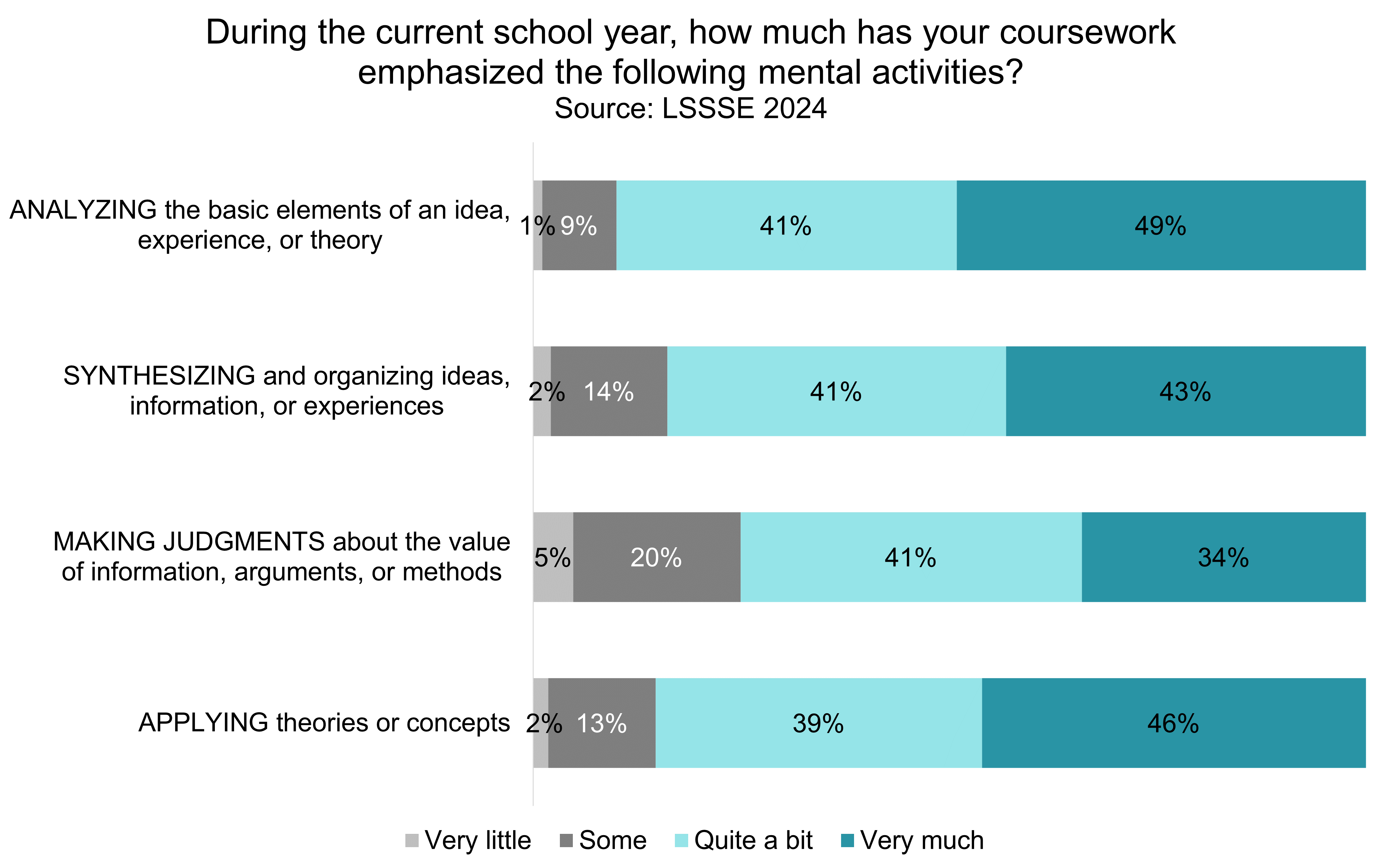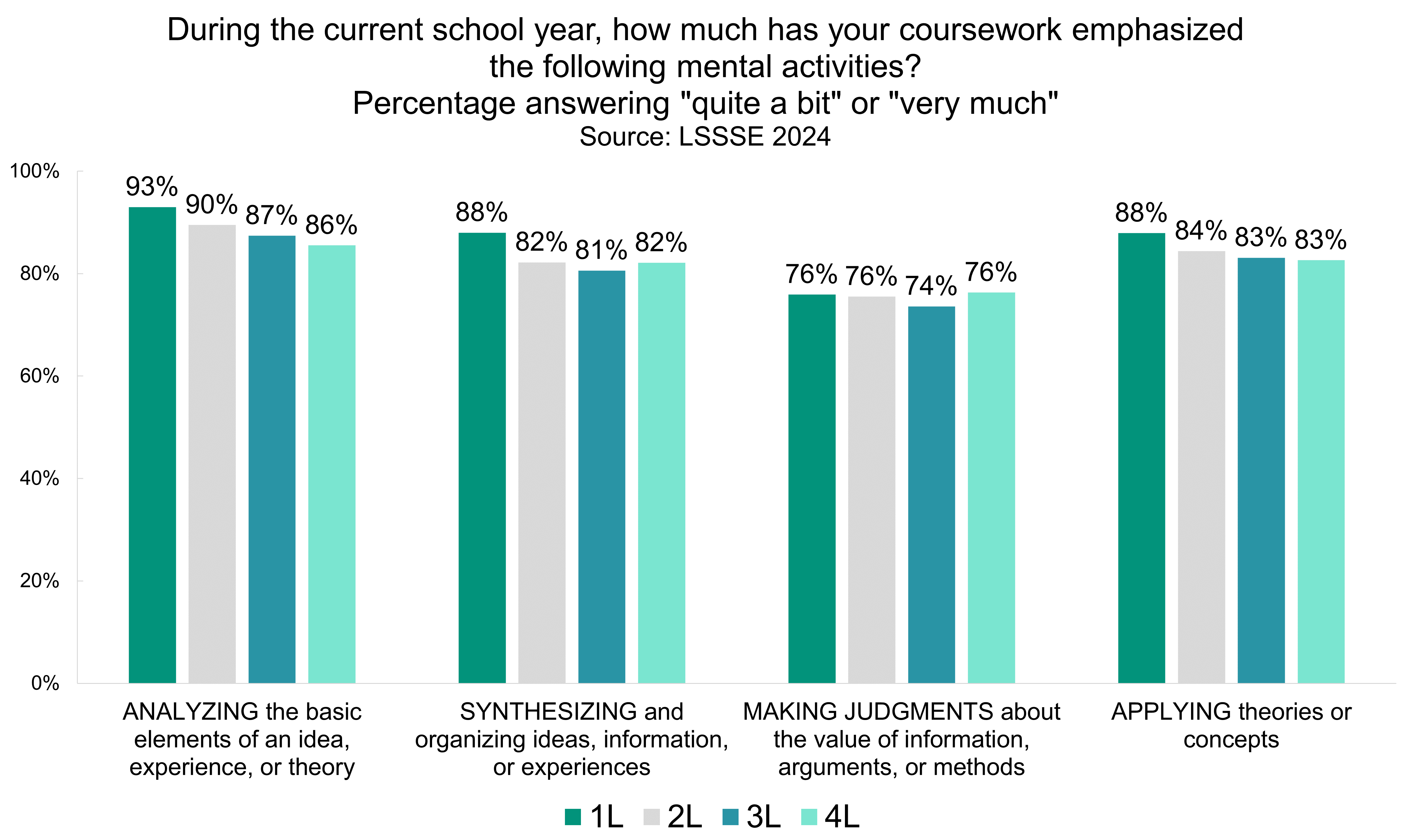Learning to Think Like a Lawyer
Learning to think like a lawyer is crucial for developing essential analytical skills and a nuanced understanding of legal principles. This process involves honing the ability to critically assess legal issues, construct persuasive arguments, and anticipate counterarguments. Learning to think like a lawyer is challenging because it requires a shift in mindset and the development of complex analytical skills. Law students must master intricate legal concepts and apply them to varied contexts, often under pressure. This involves not only understanding the law but also critically analyzing case precedents and identifying subtle distinctions. Additionally, the emphasis on precision in language and argumentation can be daunting, as even minor errors can significantly impact legal outcomes. By the time they are ready to graduate, most law students have learned to cultivate a mindset that prioritizes logical reasoning and ethical considerations, which are vital for effective advocacy. Ultimately, mastering this way of thinking not only prepares students for successful careers in law but also equips them to navigate complex societal issues with integrity and insight.
LSSSE provides a Learning to Think Like a Lawyer (LTTLL) Engagement Indicator that is a succinct metric for understanding the degree to which students are engaging in this learning process. The LTTLL Engagement Indicator combines several individual survey questions that are statistically and conceptually related to one another. This makes Engagement Indicators meaningful for comparisons because they reduce the risk of relying too heavily on any individual survey question. The LTTLL Engagement Indicator combines the following questions from the main LSSSE survey:
During the current school year, how much has your coursework emphasized the following mental activities?
- Analyzing the basic elements of an idea, experience, or theory, such as examining a particular case or situation in depth, and considering its components
- Synthesizing and organizing ideas, information, or experiences into new, more complex interpretations and relationships
- Making judgments about the value of information, arguments, or methods, such as examining how others gathered and interpreted data and assessing the soundness of their conclusions
- Applying theories or concepts to practical problems or in new situations
The response options are “very much,” “quite a bit,” “some,” and “very little.”
Of the four cognitive activities, students are most heavily engaged in analyzing the basic elements of an idea, experience, or theory. Ninety percent of law students do this often or very often. Next comes applying theories or concepts to practical problems or in new situations (85%) and synthesizing and organizing ideas, information, or experiences into new, more complex interpretations and relationships (84%). Three-quarters (75%) of law students frequently make judgments about the value of information, arguments, or methods, such as examining how others gathered and interpreted data and assessing the soundness of their conclusions.

There are some interesting differences in how students respond to these questions across class years. 1L students are more likely to frequently engage in all the LTTLL mental activities compared to 2L and 3L students. For example, 93% of 1L students frequently analyze the basic elements of an idea, experience, or theory, compared to only 86% of 3L students. Generally, 1L students are somewhat more engaged with the law school experience and more enthusiastic overall relative to their more seasoned peers, so that might explain this discrepancy. However, it is also possible that 3L students have become so fluent with these processes that they do not necessarily note them in isolation from the type of legal thinking which has become automatic to them.

By applying legal theories and concepts to real-world scenarios, aspiring lawyers learn to navigate the intricacies of the law, develop strategic approaches, and ultimately advocate effectively for their clients. This comprehensive skill set is essential for rigorous legal thinking and practice. LSSSE provides customized tools to gauge how well your students are learning these crucial mental processes as well as ways to compare your students to selected peers and national averages. Contact us to learn more.

